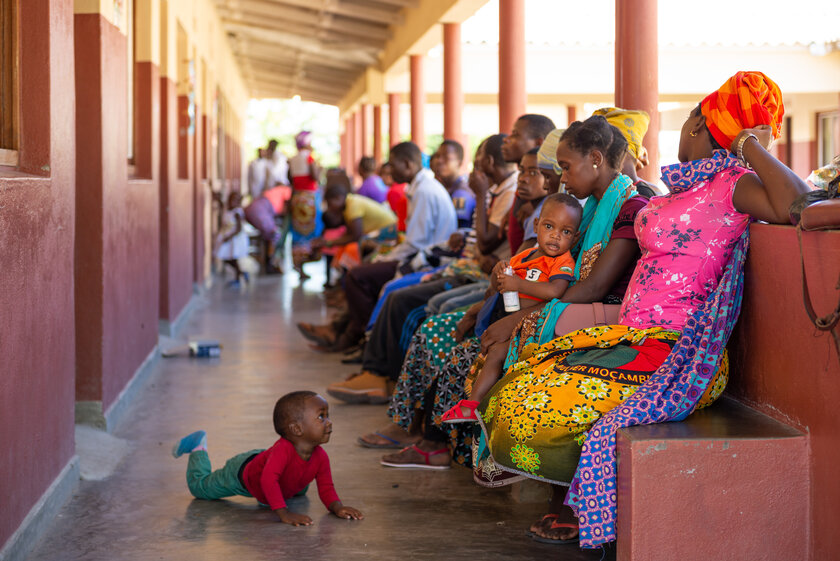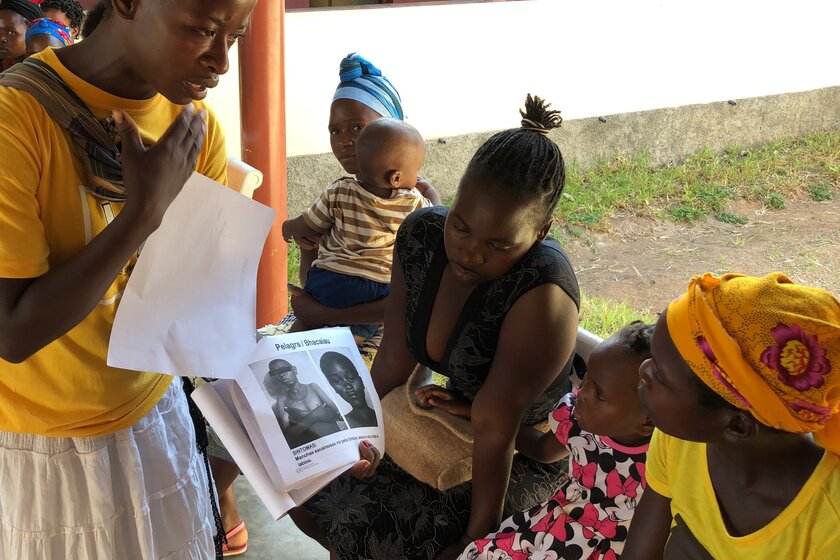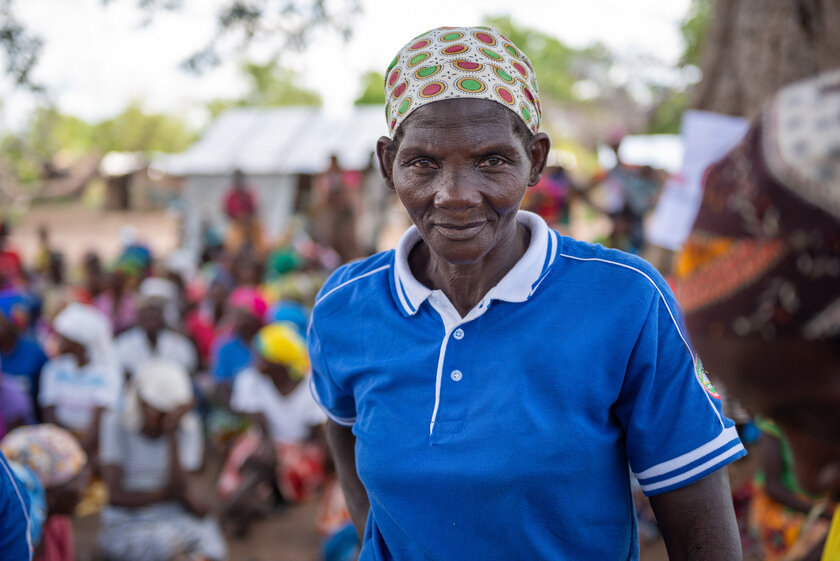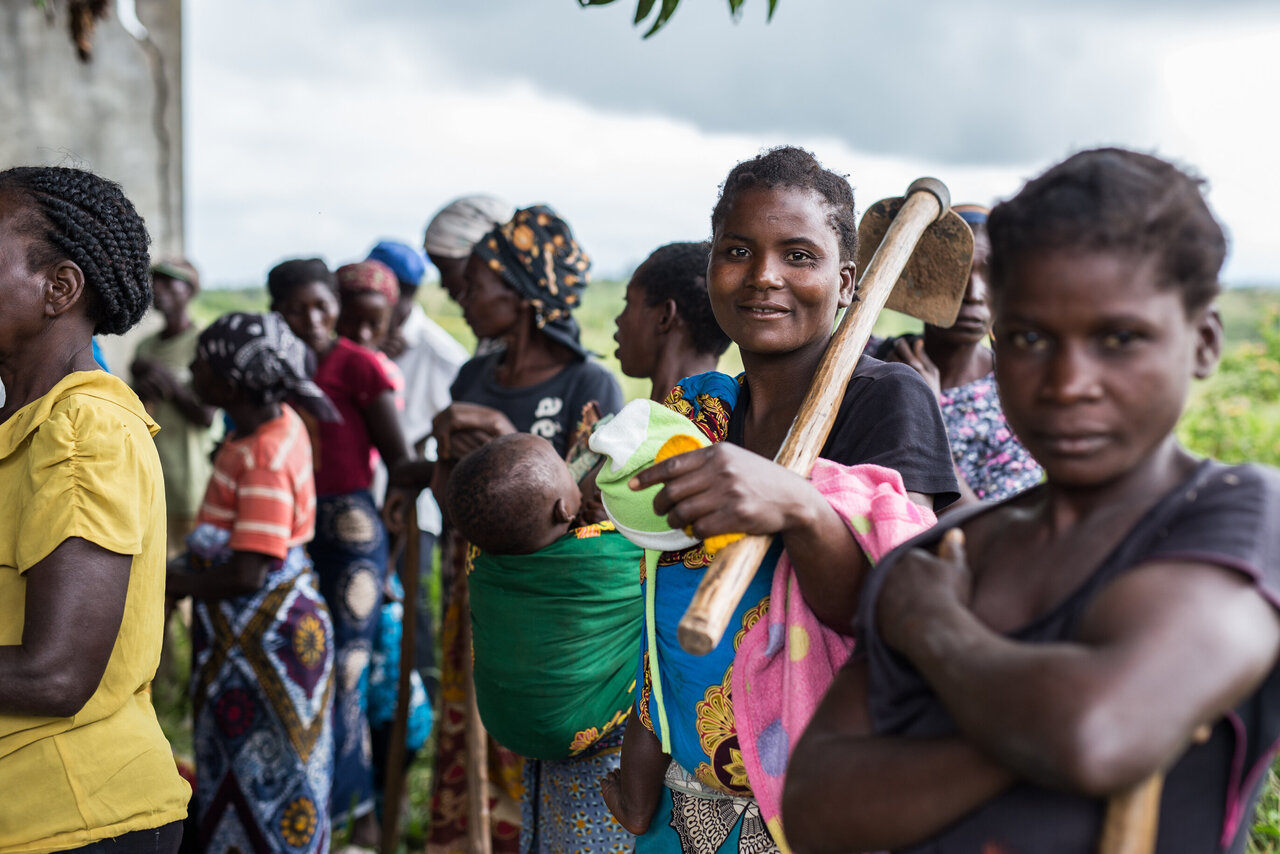Mozambique: Where there is no doctor

Berlin / Beira, 25 February 2020
After Hurricane Idai in March 2019, health care in the affected regions of Mozambique collapsed in many areas. On the other hand, there was a rise in diseases and increasing malnutrition and undernourishment. Johanniter supported the local partner organisation Esmabama in stabilising the health care system and is now helping to restore arable land. In the future, these areas will provide four schools with meals for about 2000 school children.
"A doctor? We haven't had one since 2017," says Gilberto Issu. He is a trained paramedic and director of the health centre in the rural village of Estaquinha. The situation is no exception. Health care is precarious in many rural areas of Mozambique. There is a lack of qualified staff, medical material and money. Numerous institutions have been supported for years by church and international organisations in order to somehow provide basic care. While it was already precarious at normal times, it collapsed completely in many places due to Hurricane Idai.
The health centre in Estaquinha is located in the lowlands of Mozambique and serves around 25,000 people. After the storm and the flooding that lasted for days, the number of patients had increased by about 50 percent because many small health posts were damaged or destroyed. Estaquinha was suddenly the only point of contact around the area. "We had to care for up to 200 patients a day. We carry out minor surgical procedures on incisions ourselves," says Issu. When the eleven staff members of the centre are at their limits with their knowledge or when cases exceed their competence, they refer patients to the nearest doctor. They work about an one-hour drive away.
In May 2019, we began supporting the organisation Esmabama and the centre in Estaquinha. Drugs were delivered, mosquito nets distributed and volunteers helped to educate families about how to protect themselves from disease. Malaria in particular had spread after the floods. A gas refrigerator for the vaccines was still on the procurement list in November, but is hard to get in Mozambique. Esmabama wants to look for one in Zimbabwe or South Africa. Everyday life in a country where life and survival have to be improvised every day.
Pellagra and malnutrition

Especially small children are affected. On a Wednesday morning dozens of mothers are already waiting with their daughters and sons in the centre. While waiting, volunteers inform them about pellagra. The disease is the result of a vitamin B deficiency and is mainly diagnosed by skin rashes. If left untreated it can cause severe damage to the nervous system. Pellagra occurs in regions where malnutrition persists for a long time. "We have registered 40 cases since Idai. Every day we treat about five cases of moderate malnutrition," Issu describes the situation.
The problem is that there often is no supplementary food available to treat them: This usually comes from the provincial capital Beira via UN programmes, but does not always make it to the outlying region. Therefore, supplementary food was an important component of our project. Regina is fortunate again: Her one-year-old, malnourished son has been receiving supplementary food for five months. Today she takes a few packages of peanut paste from the centre's meagre reserves with her. Gilberto Issu knows that he has to take care of supplies again.
Food, education and health as cornerstones
Despite the difficult situation, Estaquinha has a crucial advantage: Esmabama pursues an integral approach in the former mission settlement. Health, education and nutrition are the three cornerstones. Besides the health centre, Esmabama runs a school and cultivates a 57-hectare field next door. There, the food is cultivated to provide the approximately 2000 school children in the four school facilities of Esmabama with daily school meals. But since Idai the land has been lying empty. The field has to be straightened and thick layers of mud have to be removed so that corn, beans or tomatoes can grow again. The rental of heavy equipment is being supported by a new Johanniter project to enable the school to quickly become self-sufficient again. This will ensure that school meals are available again, and that children in the region can grow up healthier.

Alice Abios Mabolisse was living near the river Búzi when she was surprised by the flood waves at night. She had to climb trees with her three children to escape from the water masses. There they spent four days without food and drink, and Alice had to secure her children with cloths to prevent them from falling down. Together with 300 other families, they were evacuated to the higher situated Camp Begaja. Even today, humanitarian organisations continue to provide care for the camp and the families who have lost everything in the disaster.
"Please do not forget us! We are working hard to be able to live a better life again, but there is still a long way to go until we have fully recovered from the effects of the cyclone."
Nevertheless, Alice does not let herself be defeated and is actively engaged in improving the conditions in the camp. To this end, she has been trained as a volunteer by the local partner organisation and supports the organisation, for example, in the distribution of relief goods. She is grateful for any help she and the other families receive, even though the conditions in the camp are still in need of improvement in many areas. She hopes that organisations like Johanniter will continue to support the people.
